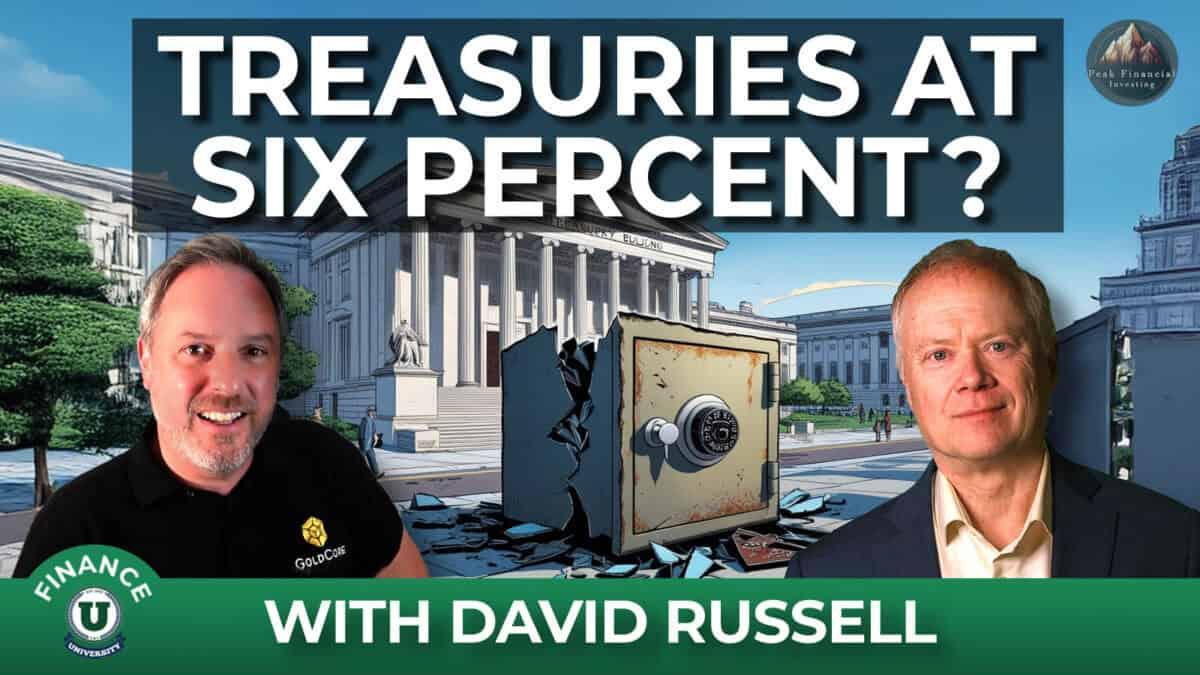
If This Happens, It’s Over!

Peak Prosperity
Deep Dive
Why are central banks, particularly in Asia, buying gold?
Asian central banks are purchasing gold as part of a strategy to de-dollarize and reduce exposure to the U.S. dollar, viewing gold as financial insurance against dollar risk.
What is the current trend in gold and silver markets among retail investors?
Retail investors, especially in Western markets, have been largely absent from the recent rally in gold and silver, with reduced transactions in the coin and bar market in Europe over the past year.
Why is there a 'silent financial crisis' according to David Russell?
The 'silent financial crisis' refers to underlying economic issues such as unrealized losses on bank balance sheets, failing commercial mortgage-backed securities, and inflation rates that are higher than reported, which are not being openly discussed to avoid panic.
What are the potential implications of a 6% interest rate on the 10-year Treasury by the end of 2025?
A 6% interest rate on the 10-year Treasury could have serious implications for the economy, including higher borrowing costs, increased federal budget deficits, and potential economic instability due to rising national debt.
Why is China reportedly buying more gold than officially disclosed?
China is likely underreporting its gold purchases to avoid drawing attention to its strategy of accumulating gold as part of its broader de-dollarization efforts and potential plans for a BRICS-backed currency.
What is the significance of the BRICS countries potentially creating a gold-backed currency?
A gold-backed BRICS currency would facilitate trade among member countries, reduce reliance on the U.S. dollar, and provide a stable common currency unit, supported by the accumulation of gold by BRICS nations.
Why is Bitcoin considered a risky reserve asset compared to gold?
Bitcoin is considered risky due to its extreme volatility, lack of widespread adoption, and potential vulnerability to technological advancements like quantum computing, which could compromise its encryption.
What are the two main strategies the U.S. government could use to address its $36 trillion debt?
The U.S. government could either cut spending, which risks plunging the economy into recession, or inflate away the debt by keeping interest rates low and allowing inflation to rise, effectively reducing the real value of the debt.
Why is inflation considered a regressive tax?
Inflation disproportionately affects lower-income individuals because a larger portion of their discretionary spending goes toward essentials like food and energy, which experience higher inflation rates, eroding their purchasing power more significantly than higher-income groups.
What is the outlook for 2025 in terms of inflation and financial markets?
2025 is expected to see continued inflation, all-time highs in stock markets and gold, increased volatility, and potential economic challenges due to geopolitical tensions, budget deficits, and the silent financial crisis.
Shownotes Transcript
Chris and David discuss gold and silver markets, central bank gold purchases, market liquidity, a “silent financial crisis,” inflation, geopolitical tensions, and predictions for future economic conditions, including potential interest rate changes and asset market volatility.